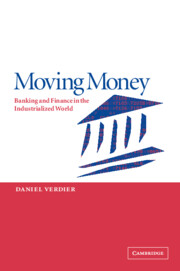Book contents
Preface and acknowledgements
Published online by Cambridge University Press: 22 September 2009
Summary
For the past eight years, I have been searching for what accounts for factor mobility or its opposite, factor specificity. It began with my 1995 Comparative Political Studies article, in which I advanced the idea that factor mobility is a sociopolitical construct, reflected in asset holders' membership in sociopolitical networks. In this book, I further probe this insight with respect to the capital factor, providing an institutional backbone for (or rather an explicit specification of) the generic and softer notion of network.
This book was written while I was at the European University Institute in Fiesole. The research was financed by the Institute and conducted in collaboration with Elisabeth Paulet. I also benefited from the tutoring of Benoit Friguet, Marcel Jansen, and Ludovic Renou, and from the advice of Giovanni Peri. Thimo de Nijs and Roland Ruittenbogaard contributed information on the Dutch case.
The book required the drudging compilation of a database, established in collaboration with Elisabeth Paulet. We thank Andrew Clayton from the Bank of England, Paolo Garofalo from the Banca d'Italia, Dr. Gabriele Jachmich from the Institut für Bankhistorische Forschung eV, Mr. Nougaret from the Crédit Lyonnais, Dr. Francesca Pino from the Banca Commerciale Italiana, Dr. Sbacchi from the Credito Italiano, and Petros Valamidas from the Bank of Greece for kindly and generously responding to our requests for documentation.
- Type
- Chapter
- Information
- Moving MoneyBanking and Finance in the Industrialized World, pp. xii - xivPublisher: Cambridge University PressPrint publication year: 2003



